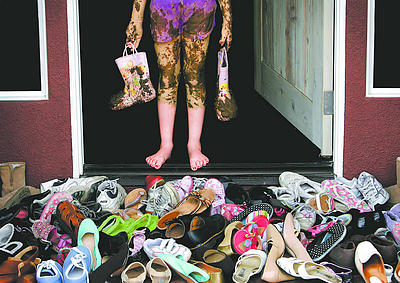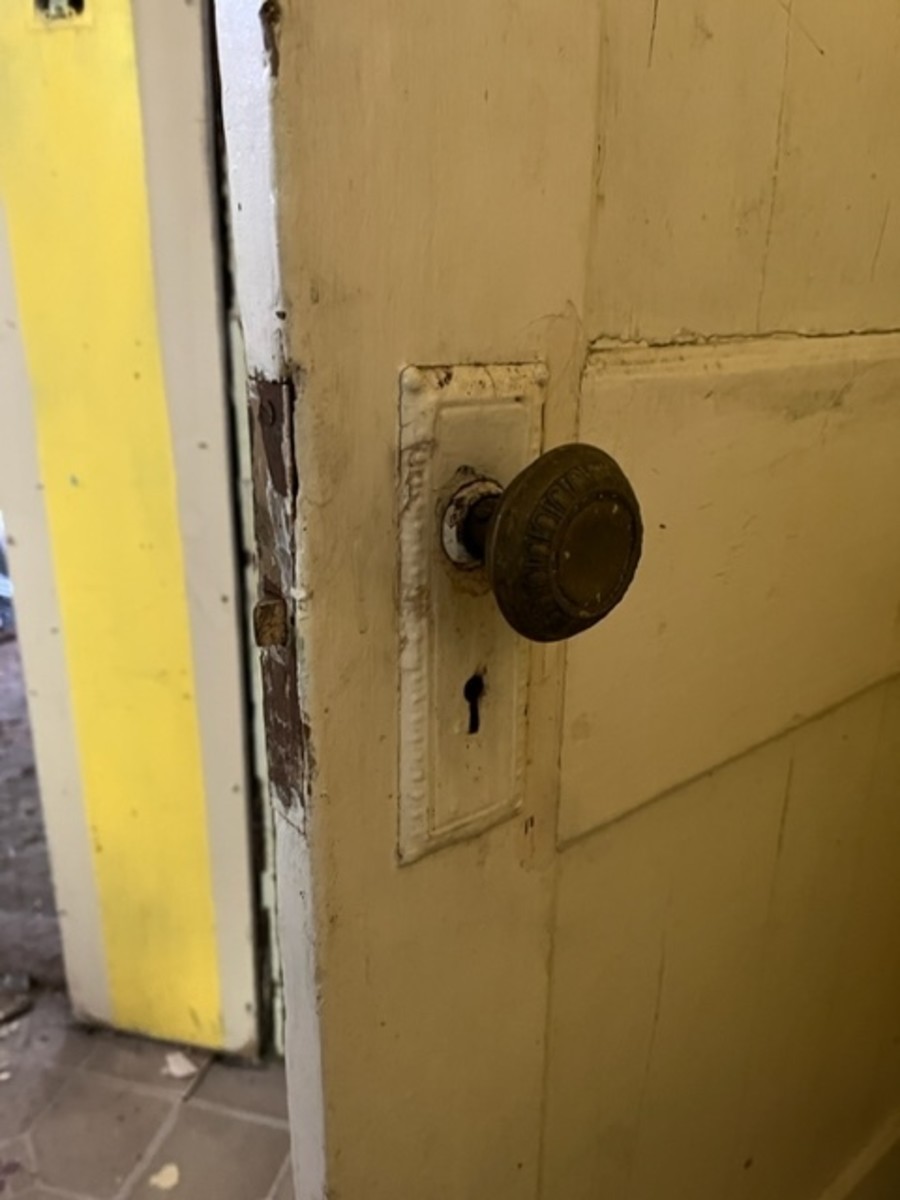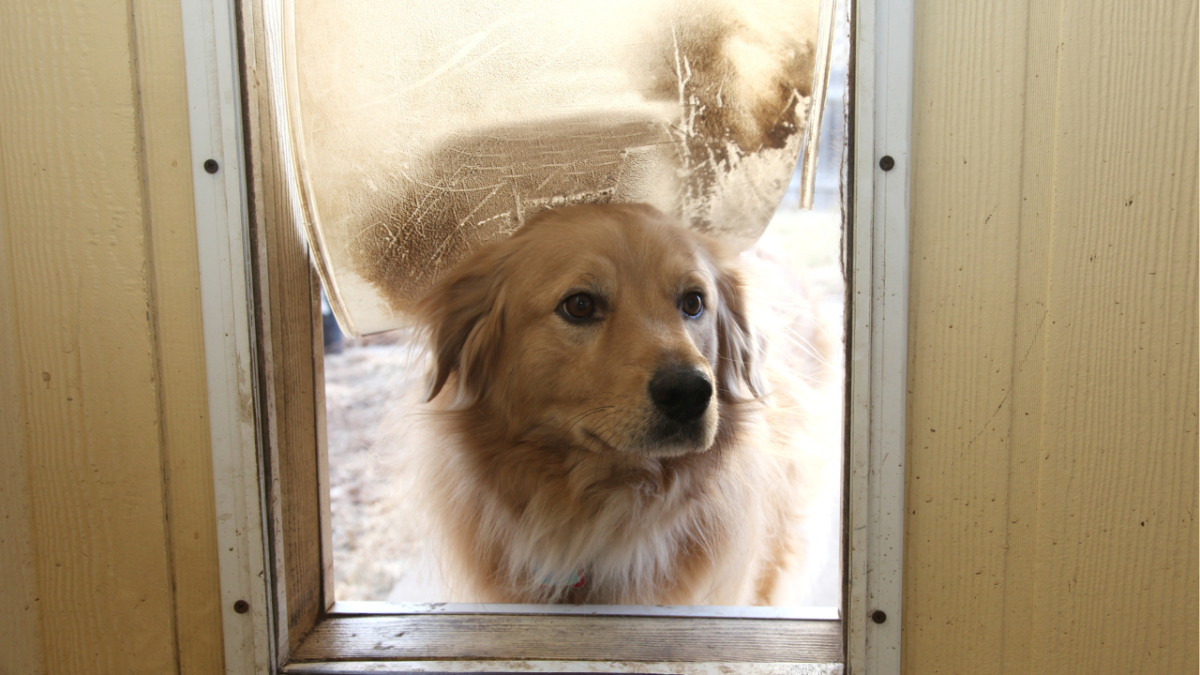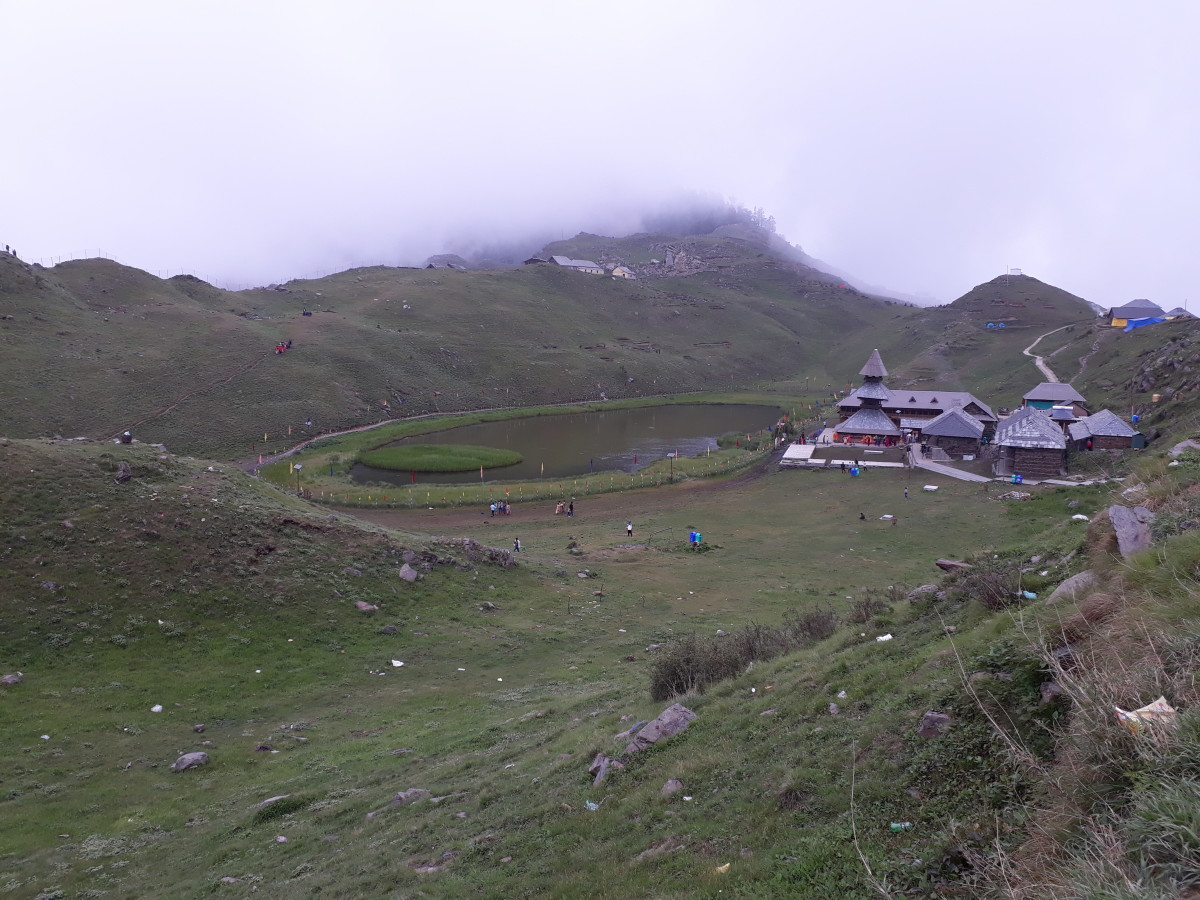To Remove Your Shoes or Not at the Door
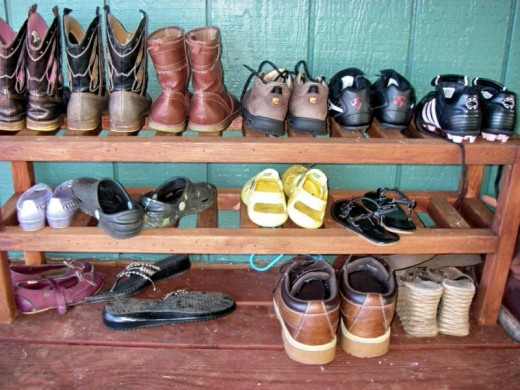
Having been raised in Utah, we never even considered taking our shoes off at the front door when we enter someone else's or our own home. But, since having lived in the South Pacific (Tonga, Samoa and Hawaii) for most of my married life, I have become aware that it is customary for more people throughout the world to remove their footwear entering a home than not.
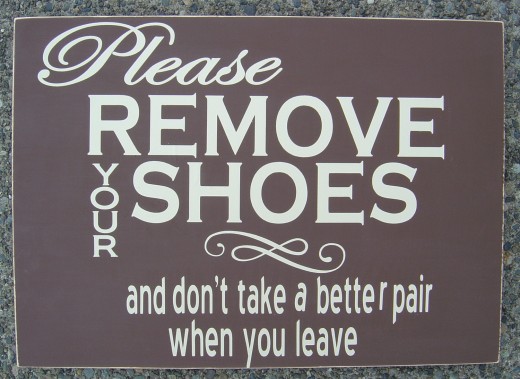
Where I currently live in Hawaii, it is the standard practice to take off your shoes when you enter a home and leave them off until you depart. Usually the owner of the home will have a shoe rack made of wood or metal on their front porch where you can leave your silipa or slippas (slippers), sandals, shoes or boots. It is pretty much a give away that you are not local if you leave your shoes on when you enter a home.
Most locals also understand that visitors or tourists are not aware of the custom, and have little signs at the door saying to leave your shoes off when you enter. Some say "no need" if they don't mind you leaving them on. Oftentimes, we look around at the various shoes left on the front porch to see if we like any other shoes better than our own, and joke around that we may take them. A couple of times, I have had my shoes taken, but figure they must have needed them more than I did!
My father came to stay with us a few months here in Hawaii. He is of Scottish ancestry, and has lived all his life in Utah. He has very tender feet, having worn shoes and socks his whole life from dawn to dusk. I told him not to worry about taking his shoes off when he is here in Hawaii. He doesn't even like the feel of the sand on his feet, so I don't force him. My feet have toughened up a bit over the years, so I actually prefer no shoes. Personally, I can hardly wait to take my shoes off for whatever reason.
Then there is my husband, who can't make up mind to leave them on or take them off. I find several pairs of his shoes in little corners stashed throughout the house wherever he decided to take them off!

In Japan, shoes are removed so they do not tear the straw floor covering. Some housing contracts in Tokyo actually retain some of the deposit if it is found that the renters are not removing their shoes inside their apartments. Also, the word for outside shoes in Japanese is "dosoku" which means soiled feet . They have a saying which means to dishonor horribly (dosoku de fuminjiru ) translated - dishonorably stepping on with outdoor footwear.
In other parts of the world, many people cannot afford shoes, or it is their custom not to wear any shoes in or outside. Many people sit and sleep on their floors, so wearing shoes in the home would bring in mud or dirt from outside.
In Fiji, men in certain tribes like to show their bravery by walking on hot coals without any protection. To get them toughened up for this activity, they go without shoes and calluses form on their feet. Here, again, to wear shoes or not has a lot to do with where you were brought up.
In some parts of the world, people take of their outside shoes, and don or slip on some house slippers. It is also a show of respect to remove your shoes when entering a temple or mosque. As a member of the Church of Jesus Christ of Latter-day Saints (otherwise known as Mormons), when we enter our temple, we are required to remove our regular shoes and put on a pair of white shoes.
In Exodus, in the Bible, it mentions that the Lord told Moses to remove his shoes because he was walking on Holy Ground. Shoes are tools used by man to get around in the imperfect world. But out of respect, submission and acceptance, we take off our shoes when entering sacred space.
A Hindu concept is that for chakra energy to work. When one goes barefoot, you can connect root chakra. For the earth to communicate with your chakra, you must remove your shoes.
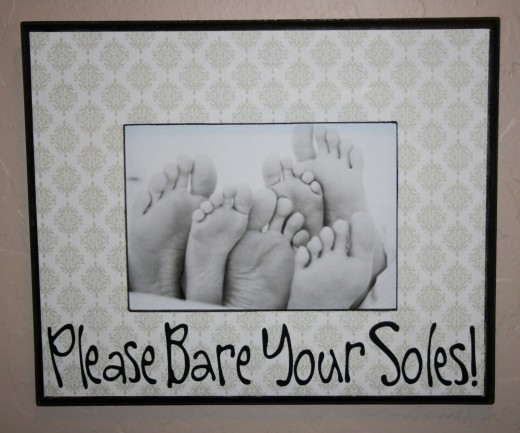
On a more practical level, taking your shoes off means that the oil on your feet can be absorbed into carpet or rugs. Guests are encouraged in some homes to leave their shoes on for this purpose.
For those that suffer from allergies or lung disease, it is best that people take their shoes off when entering so they do not bring along pathogens that would cause an allergic reaction.
Another opinion is that you bring in 80 percent of the dirt that is in your home on your shoes.
For whatever reason, if you prefer that your family and guests take their shoes off when entering your home, here is wording for signs which you could make:
This is an American Home With a Japanese Style. Please Remove Your Shoes.
Life is full of choices. Remove your shoes or scrub the floor.
Please remove your shoes. I hate to clean.
Family and friends are welcome, but the soil on your shoes is not. Please leave it at the door.
Please remove your shoes, and no switching to better ones on the way out.
or
Please remove your shoes...feel free to take a different pair when you leave.
At the request of the owners, please remove your shoes.
Please remove your dirty shoes.
Mahalo (thank you) for removing your shoes
As for me and my home, we live close to the beach, and sand is a very hard thing to get rid of once it gets in the home. So, I do prefer that you take your shoes off when you enter, especially if you have been to the beach. It would be fun to hear how you feel about this subject. Thanks for reading.
